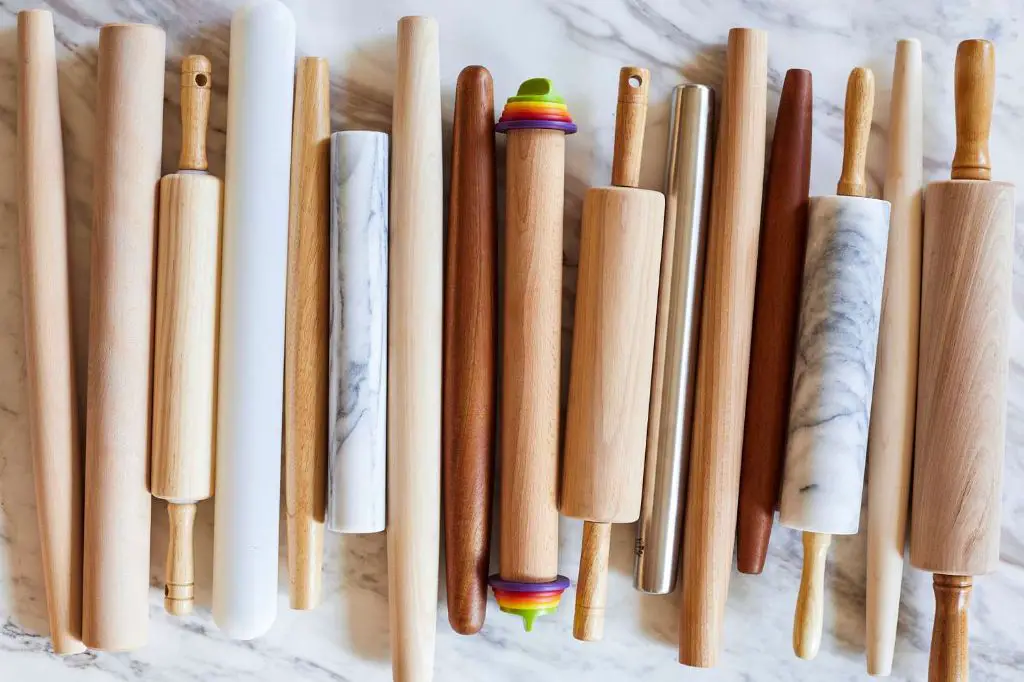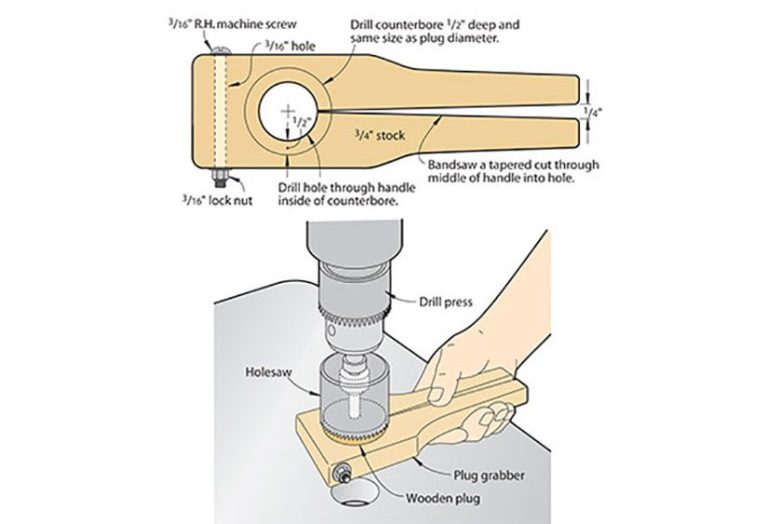Why Use A Wooden Rolling Pin?
The Timeless Appeal of Wooden Rolling Pins
For centuries, bakers have relied on the humble wooden rolling pin to roll out delectable homemade doughs. While today’s bakers have more options than ever when it comes to rolling pin materials, from marble to silicone, the old-fashioned wooden rolling pin still reigns supreme for many. Read on to discover why wood remains the top choice for countless home and professional bakers.
Durability
One of the biggest advantages of using a wooden rolling pin is its durability. Wooden rolling pins can easily last decades, even with frequent use. Unlike plastic, metal, or silicone pins which can warp, crack, or bend over time, wood stands the test of time and maintains its shape (It’s Time to Upgrade Your Rolling Pin to This Simple Beauty). The solid hardwood construction of a French-style tapered rolling pin ensures it will not bend or break under pressure when rolling out dough. In fact, some people report using wooden rolling pins that have been passed down for generations and still work perfectly.
With proper care and maintenance, a quality wooden rolling pin can literally last a lifetime. The natural strength and density of wood materials like maple and beech make wooden pins incredibly durable kitchen tools. While plastic or metal pins may be prone to dents, cracks, or warping, a solid wood rolling pin resists damage and provides reliable performance for many years of baking.
Texture

One of the main benefits of using a wooden rolling pin is the texture and traction it provides when rolling out dough. The wood grain gives the rolling pin a natural grip that helps prevent sticking. This allows the dough to be rolled out smoothly and evenly without needing extra flour for dusting.
Metal or plastic rolling pins often have a slippery, smooth surface that can cause dough to stick while rolling. With a wooden rolling pin, the tiny valleys and ridges along the wood grain dig into the dough just enough to move it along without sticking. The rougher texture essentially “grips” the dough. This makes it much easier to get an even thickness when rolling out pie crusts, pizza dough, cookies, and more.
As noted in this Amazon rolling pin product page, the natural wood surface provides excellent traction without needing any extra coatings or finishes that could wear down over time.
Temperature
One of the key benefits of using a wooden rolling pin is its ability to stay cool while rolling dough. Unlike metal or plastic rolling pins, wood is an insulator and does not easily conduct heat (Joythebaker.com, 2015). This is important when working with delicate doughs and pastries that should not be warmed during the rolling process. The natural insulating properties of wood prevent the rolling pin from heating up and transferring warmth to the dough (Allrecipes.com, 2022). Cooler doughs are easier to handle and roll out evenly. Metal and plastic pins tend to warm up quickly, potentially causing the dough to become sticky and more difficult to manage. The temperature regulation abilities of wood make it the ideal material for rolling pins.
Hygiene
Wooden rolling pins have natural antibacterial properties that make them more hygienic than plastic or other materials. Studies have shown that wood contains compounds that inhibit bacterial growth and kill harmful microbes that come in contact with the surface (https://www.ncbi.nlm.nih.gov/pmc/articles/PMC7277147/). The natural absorption of moisture in wood creates an environment unsuitable for bacteria to thrive. Other materials like plastic and metal cannot absorb moisture and pathogens in the same way, allowing bacteria to persist.
Wood cutting boards and utensils have been found to be more sanitary than plastic alternatives, despite the appearance of knife scars and cuts in the wood over time. The antibacterial properties of wood mean fewer bacteria survive on its surface compared to plastics or glass (https://hardwoodreflections.com/is-wood-naturally-antibacterial/). Using a wooden rolling pin is therefore a more hygienic choice for working with dough and pastry.
Research confirms that wood’s natural antibacterial properties make it self-sanitizing with usage over time. The more a wooden rolling pin is used, the greater the antibacterial benefits become. This gives wooden rolling pins a clear hygienic advantage over materials that allow bacteria to accumulate and grow with repeated use.
Aesthetics
One of the main appeals of wooden rolling pins is their beautiful, handcrafted look that stands out from factory-made materials. Each wooden pin has a unique grain pattern, adding rustic warmth and charm to any kitchen. As this article discusses, wooden utensils contribute an elegant, artisanal aesthetic unlike mass-produced plastic or metal options. The smooth sanded finish of a wooden pin is pleasing to the eye and touch. Wood’s natural variations in color and texture provide visual interest. While metal or acrylic pins have an industrial sameness, no two wooden pins are exactly alike. For those who appreciate craftsmanship and want to add a touch of elegance to their baking, a hand-turned wooden rolling pin offers timeless beauty.
Traditions
Wooden rolling pins have a long history of being used as baking tools. The earliest evidence of a wooden rolling pin dates back to the Roman Empire, where a type of long, thin rolling pin called a magem was used to roll pastry dough (1). Wooden rolling pins grew in popularity throughout Europe over the centuries, becoming a common kitchen tool by the 18th century. The mid-1800s marked the earliest commercial production of wooden rolling pins, often made from hardwoods like maple or cherry (2). By the late 19th century, wooden rolling pins were a standard baking necessity in most American households.
Using wooden tools for baking connects modern home cooks to centuries of culinary tradition. Wood imparts a timeless, old-world feel that ties into nostalgia for homemade cooking. Beyond functionality, the visual aesthetic and tactile sensation of a handsome wooden pin can make baking feel more like an artisanal craft. Preserving the heritage of beloved wooden baking tools maintains a tangible link to previous generations in home kitchens. In a fast-paced digital era, wooden rolling pins keep alive the simple pleasures and family memories of baking day.
Sources:
(1) https://therollingpinllc.com/french-pastries-blog/the-history-of-the-rolling-pin
(2) https://www.woodenearth.com/blogs/wooden-blog/history-of-the-rolling-pin
Environment
Wooden rolling pins are more environmentally friendly than plastic or metal options. Wood is a renewable resource that can be sustainably harvested from forests and plantations (Alder-Tek). Unlike plastic which contributes to pollution, wood safely biodegrades at the end of its life. Metal, on the other hand, requires intensive mining and processing which depletes natural resources.
Wood also acts as a carbon sink, absorbing carbon dioxide from the atmosphere as it grows (Alder-Tek). This makes wooden utensils carbon-neutral or even carbon-negative, helping fight climate change. Responsibly harvested wood has much less environmental impact compared to plastic or metal.
Opting for a wooden rolling pin is an easy way to make your baking more eco-friendly. The renewable nature of wood makes it ideal for sustainable kitchen tools.
Cost
Wooden rolling pins are an affordable kitchen tool for both professional and home bakers. Antique wooden rolling pins can often be found at reasonable prices from estate sales, antique stores, or online auctions. These vintage pins have a uniqueness and charm that mass-produced pins lack. According to Amazon, new wooden rolling pins range from $5 to $50, with most high-quality pins selling for under $20.
Handcrafted wooden rolling pins made by artisans are also an option for those seeking a custom piece. While more expensive than mass-produced pins, these handmade rolling pins make excellent gifts and family heirlooms to be passed down. Whether opting for an antique find or supporting a local woodworker, wooden rolling pins are a budget-friendly investment for any kitchen.
Conclusion
In summary, wooden rolling pins offer a number of advantages over other materials. Their durability ensures they will last for years of frequent baking. Wood provides ideal temperature regulation and will stay cool while rolling out dough. The porous nature of wood allows it to absorb small amounts of flour and dough, keeping your countertop cleaner. Wooden pins have an attractive, old-world aesthetic that enhances any kitchen. Using a wooden pin connects you to generations of bakers before you. Sustainably harvested wood is an eco-friendly choice. Finally, wood pins are very economical, costing far less than pins made of other materials.
With all these benefits, it’s easy to see why wooden rolling pins have stood the test of time. If you’re looking for a reliable, effective, and beautiful baking tool, a wooden rolling pin is highly recommended.




